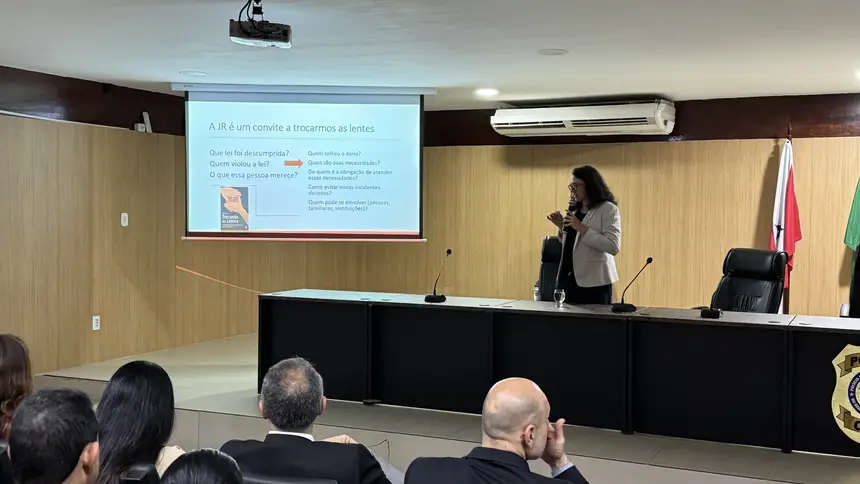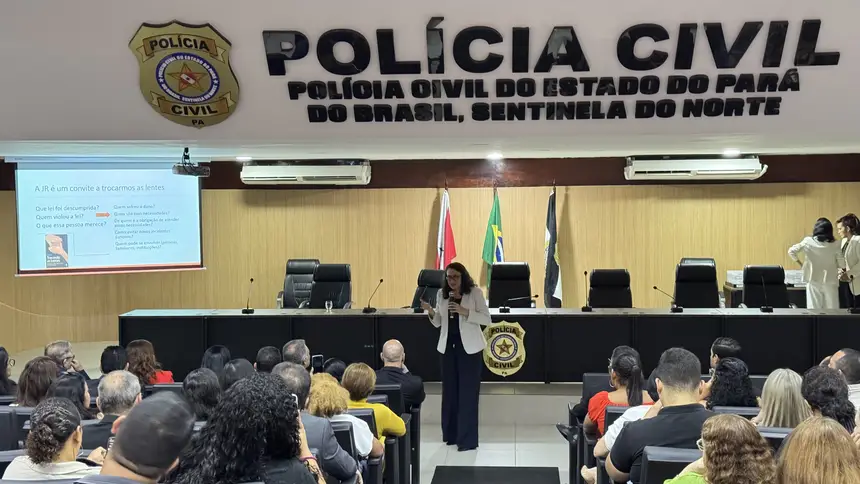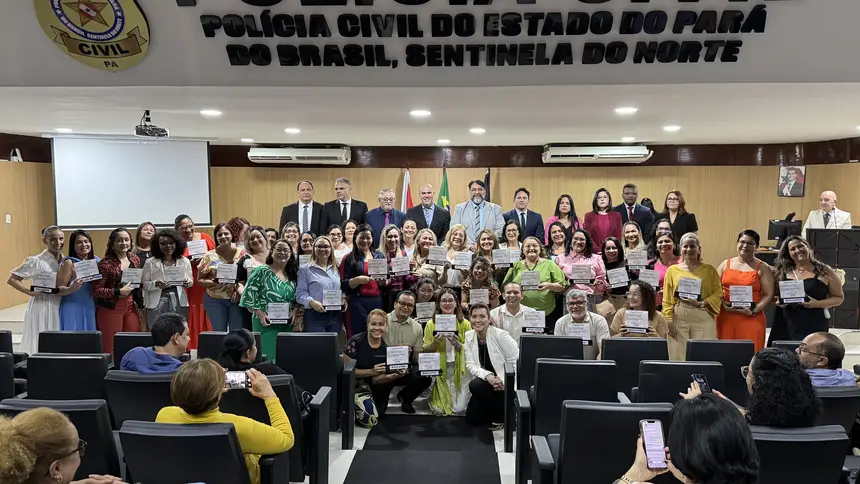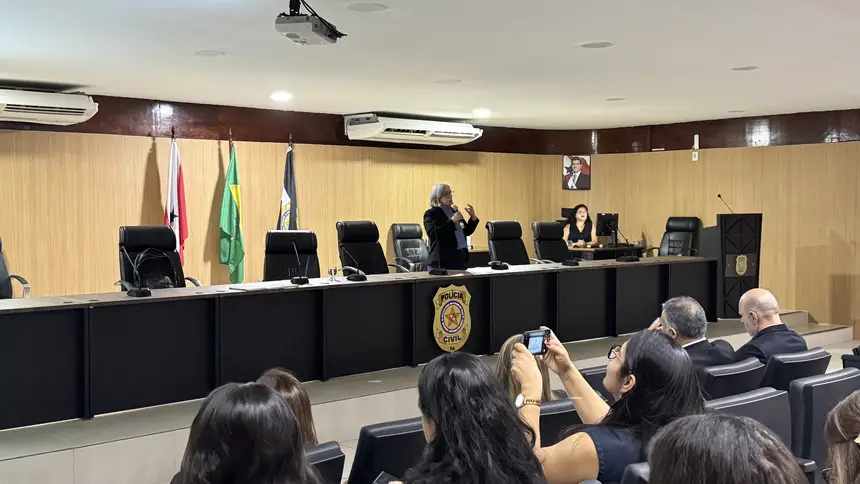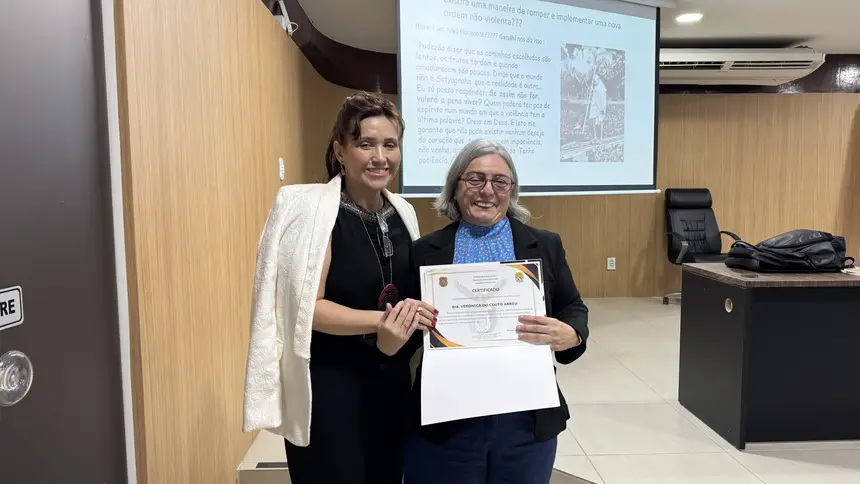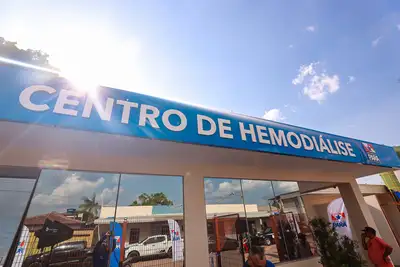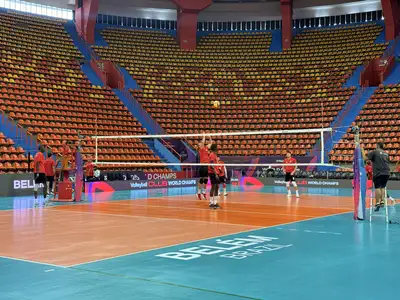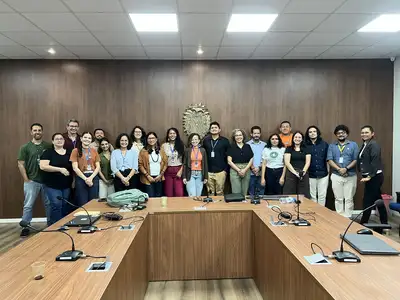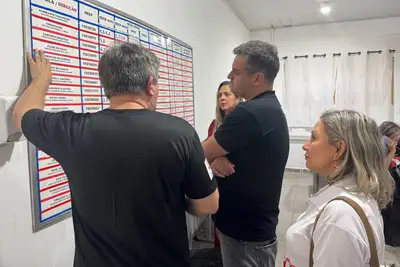Civil Police and Court of Justice of Pará sign cooperation agreement implementing the Restorative Justice Project
The partnership aims to resolve conflicts more swiftly and effectively through dialogue and negotiation
On the morning of this Thursday (29), the Civil Police of Pará and the Court of Justice of Pará signed a technical cooperation agreement aimed at conflict resolution. The result of the partnership is the creation of Restorative Justice centers, designed to peacefully resolve minor offenses through dialogue, significantly contributing to reducing the volume of cases that reach the courts. The event brought together operational directors from PCPA, authorities from TJPA, the Public Prosecutor's Office, the Public Defender's Office, among others.
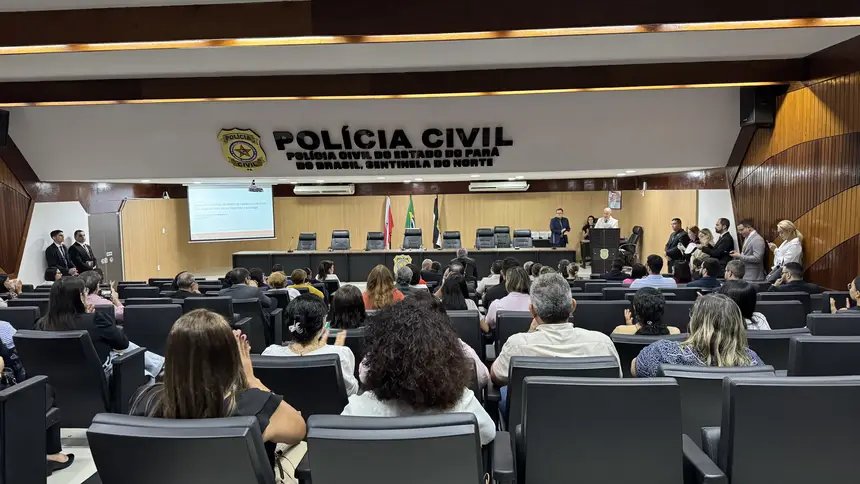
"The technical cooperation agreement establishes the Restorative Justice centers in police stations and the protocol of intentions aimed at technological integration between the Judiciary system and the units of the Civil Police. Both represent a joint, firm, and committed effort to bring Justice closer to the people, making access simpler, more efficient, and welcoming. The protocol aims to facilitate the processing of procedures adopted by the Civil Police and connects with our Justice, eliminating several steps and making the process more practical," said Judge Roberto Gonçalves de Moura, president of the Court of Justice of the State of Pará.
The presence of the centers in police stations is a significant step in re-signifying these environments, transforming police stations into spaces for listening and pacification. "This is a landmark day for the history of the Civil Police and, especially, for the society of Pará. The implementation of Restorative Justice within the Civil Police stations changes the focus for addressing many minor offenses, where the main focus will be on welcoming the victim who will receive a differentiated treatment through the work of the institution's social workers. Thus, the project establishes that mediation and the composition agreement signed at the police station will be forwarded to the Judiciary to have validity and bring more efficiency, legal security, and protection to all society," detailed the deputy general delegate, Temmer Khayat.
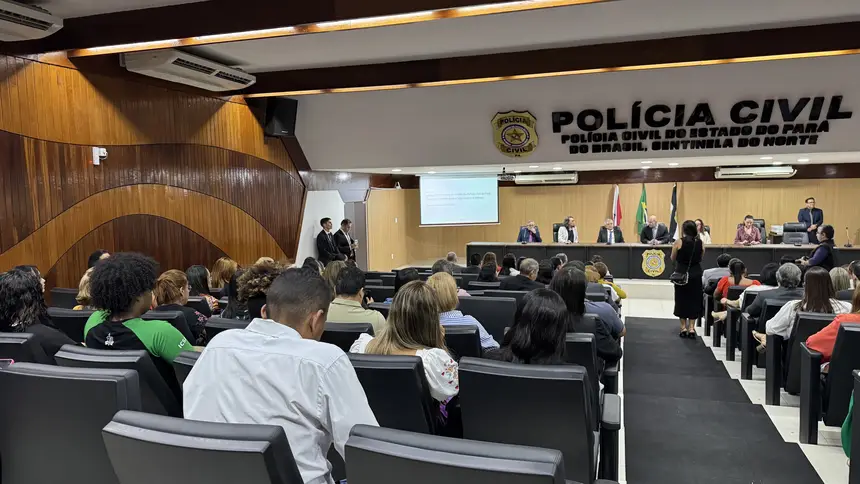
The protocol of intentions provides for a technological solution between the Court and the Civil Police of the State, integrating systems and speeding up the processing of minor offenses. The tool will allow police stations to consult schedules, schedule hearings, and carry out notifications in an orderly manner with the Judiciary, making service to the population faster and more effective, as all institutions present at today's event have a single goal, which is to provide quality service to society and positively change people's lives.
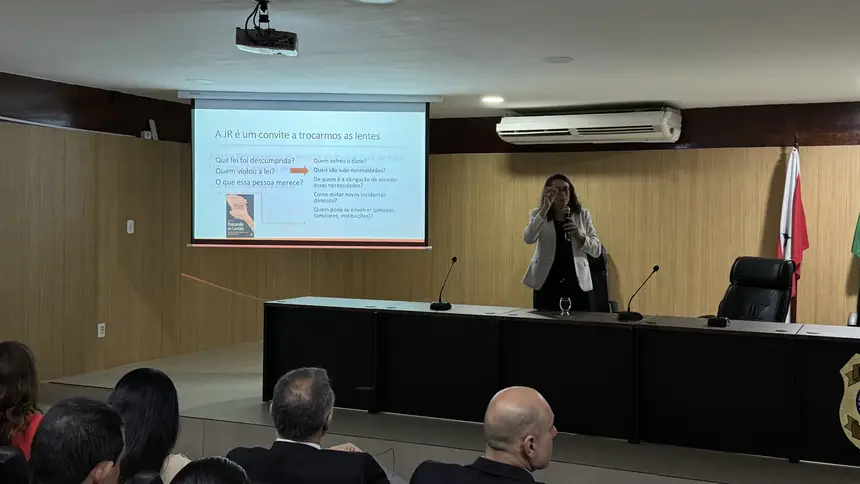
"Today the Civil Police is celebrating the creation of Restorative Justice within police units, and this is fundamental and very important for the work of the Social Workers who are part of the institution, aiming to assist the population in building a much healthier social fabric. The first unit to implement the Center is the Cabanagem Police Station," explained delegate Silvia Rêgo, coordinator of the Restorative Justice Project.
During the program, lectures were held on Restorative Justice and the importance of Social Work in public safety and the institution's intervention practices. "We, as Social Workers of the Civil Police, work with prevention and with comprehensive protection within the public safety policy in direct service to people, using methods such as mediation and dialogue so that they understand and think about their responsibilities and conduct, as well as acting to guarantee the rights of those served in police units. Restorative Justice corroborates and adds even more to this work, giving it a more scientific character, bringing a more professional and strengthened reading of the profession, which serves people and conducts qualified listening," emphasized Graciane Almeida, social worker of PCPA.
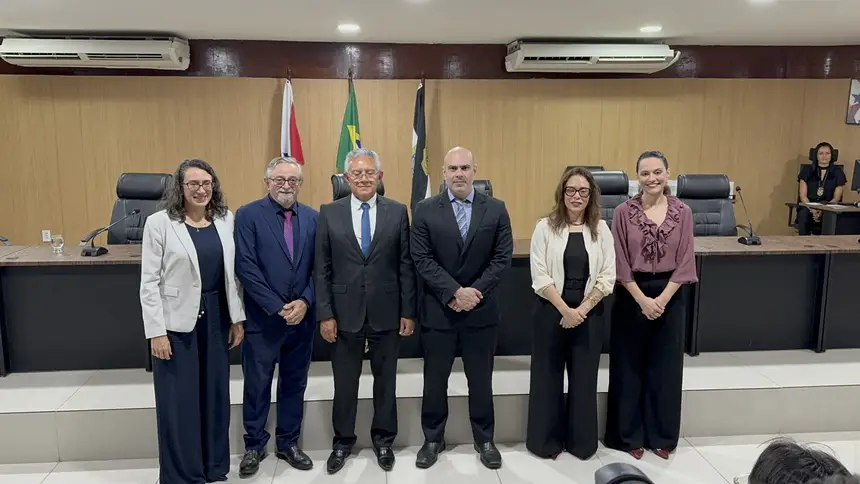
The project encompasses raising awareness among managers who lead operational teams about the need for a humanized approach, aimed at supporting victims of offenses, with a welcoming, safe service, and, likewise, holding offenders accountable.
On this occasion, all social workers who make up the staff of PCPA were honored for their work developed within the institution.


